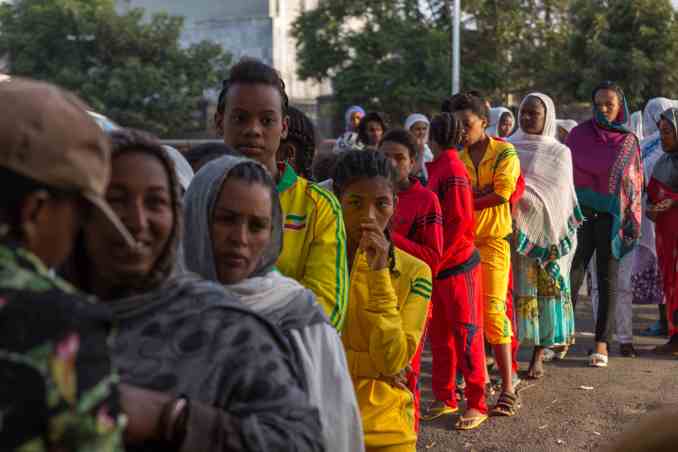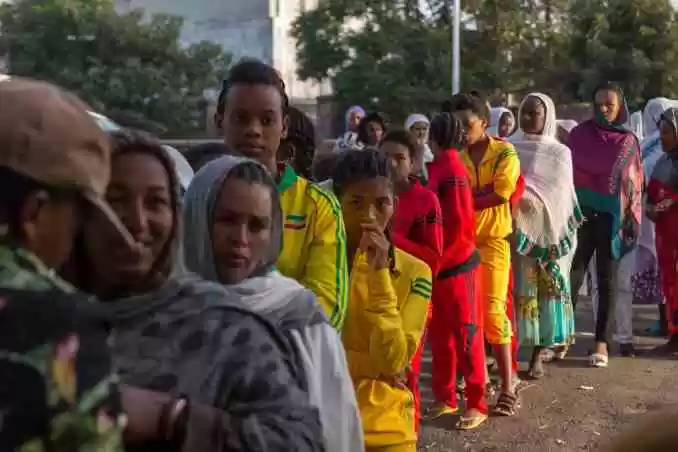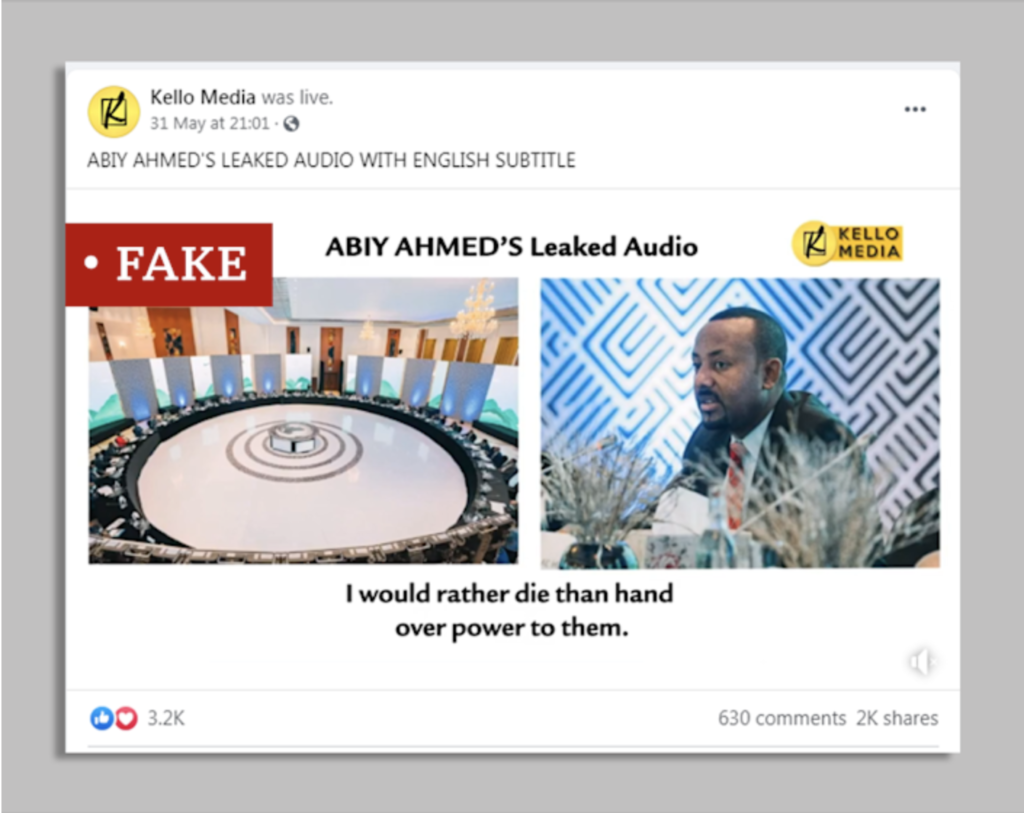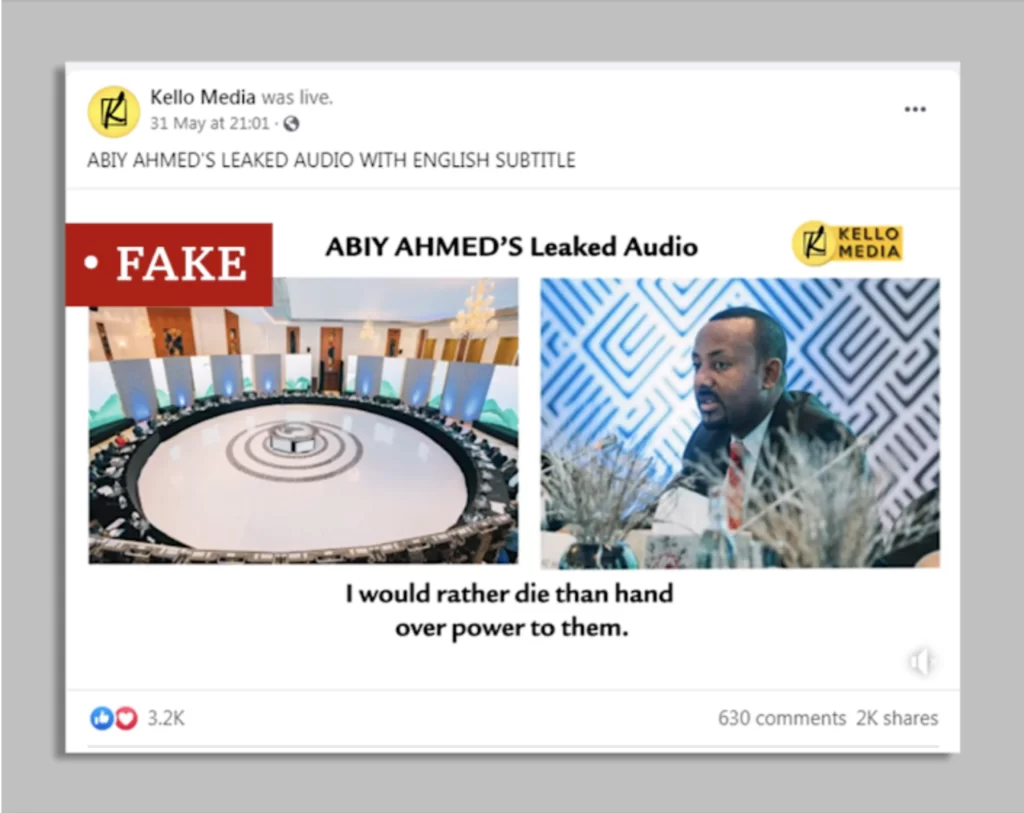

Last updated on September 11th, 2021 at 07:58 am
Some online users have been spreading false information and claims as Ethiopia prepares for legislative elections on Monday. In comparison to other African countries, Ethiopians have limited access to social media, but its use is fast increasing, particularly around major events such as national elections. Facebook took down accounts that it claimed were spreading false information just days before the election.
The Prime Minister did not state that he would ‘rather die’ than relinquish power. An audio tape, purportedly of Prime Minister Abiy Ahmed, supposedly leaked from a top-level meeting of the ruling party, has become one of the most frequently disseminated pieces of fakery during the election campaign. The prime minister is overheard saying that he would “rather die” than step down.


The recording was first provided by Kello Media, a US-based internet news organization, which claimed it was legitimate. My Abiy’s office afterward issued a statement claiming that the audio was a hoax and that it was “crafted together by drawing on other irrelevant remarks made by the prime minister.”
READMORE: Morocco to receive $450 mn in loan from World Bank to boost resilience
This is a far-fetched claim, but it underlines the tensions between Ethiopia and its neighbors over the construction of a massive new dam on the Blue Nile in Ethiopia. The filling of the Grand Ethiopian Renaissance Dam and its impact on water flow downstream has been highly controversial, and it is one of Abiy Ahmed’s finest achievements. Unverified statements concerning the dispute have been posted on a Facebook page based in Egypt, including one that Ethiopia is planning a nuclear assault on Egypt.
“It’s interesting that dozens of news [articles] began to escalate concerning Ethiopia’s preparation to launch a nuclear assault on Egypt, especially when the Renaissance Dam issue escalated at unprecedented rates,” the post states.
Ethiopia, on the other hand, does not have nuclear weapons. In fact, no African country possesses nuclear weapons at this time.
The Somali president supports their military forces to eliminate the threats from Al-Shabaab, ISIS, and Al-Qaeda. The Somali National Army…
UAE President Sheikh Mohamed bin Zayed Al Nahyan held talks with President Faustin Archange Touadéra of the Central African Republic…
African football teams struggle intensely in the World Cup Qualification rounds to earn their place on the international football stage.…
The journey toward the 2026 FIFA World Cup is rapidly intensifying for all African teams, who now hold a historical…
The cricket authority in Zimbabwe will organize matches between top international teams in a major cricket event expected to succeed…
In 2025 the South African Social Security Agency (SASSA) announced its designated dates for social grant payments that benefits millions…
This website uses cookies.